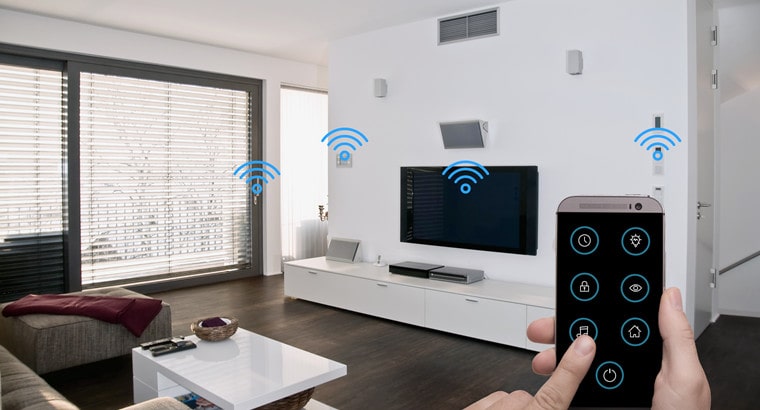From advanced temperature control gadgets to entire home security systems, smart devices have found their way to thousands of households worldwide. With the rapid development of newer and more advanced smart devices, the prices of these once luxurious gadgets have become quite affordable.
Nowadays, most average-income households can afford simple, smart home devices that make daily life simpler and more enjoyable. The only downside is potential security risks tied to using numerous internet-enabled devices within your home. Here’s what you need to know about the security of popular smart home gadgets.
Can You Get Hacked Through Smart Home Devices?
While smart home and home automation devices make certain aspects of life easier, they definitely bring a level of security risk to your household. To answer this question, yes, smart home devices can be hacked, mostly due to user error. Devices with outdated software or poor security protocols can serve as entryways for hackers who are fishing for personal information.
To make matters even worse, it’s not only your personal data that are at risk. It’s your privacy as well. A hacker who gains access to your smart home system can do just about anything you can. They can control indoor and outdoor cameras and get a viewpoint of every corner of your house.
Think about how creepy it would be to have someone else take over your smart devices. Washers and dryers are running on their own, doors locking and unlocking like crazy, music blasting out of nowhere… You need to take action to protect your smart home devices to prevent any of these horror scenarios.
How to Protect Your Data and Devices
To protect your smart home system, you need to understand that hackers can access it so easily. The truth is, there are thousands of smart home servers publicly visible on the internet, and yours could be one of them. Consumers set up these servers on their personal computers or smartphones to connect their smart devices with one another.
This connection is called the MQTT or Message Queuing Telemetry Transport protocol, and it allows different devices to communicate. The only problem is that most communication servers on the internet don’t even have simple password protection, let alone more advanced security layers.
The good news is that you can indeed protect your smart home system if you take action in time. Here are a few tips:
#1 Set up strong passwords
Instead of leaving the front door to your personal data wide open, make sure to set up a password wherever possible. Come up with a strong password that’s not predictable and easy to guess. Remember that hackers have advanced software that can guess thousands of password combinations in a matter of minutes. Don’t make this easy for them!
#2 Set your router setting to private
The most common rookie mistake people make is making their router publicly available. Letting everyone access your router without encryption or even a password is like leaving your front door wide open and putting out a “please enter” sign on the porch. Make sure to password protect your router and adjust its privacy settings to get the most out of its built-in security system.
#3 Keep your systems up to date
Besides regularly changing your passwords and ensuring your privacy settings are in order, another good practice is keeping your systems up to date. That way, you will get rid of unwanted vulnerabilities and prevent hackers from taking advantage of your data and devices. Stop procrastinating and update your devices right away – better sooner than later!
#4 Use a VPN
Last but not least, make sure to use a VPN or virtual private network to protect all internet-enabled devices. A VPN protects all of your outgoing data by encrypting it and making it private on the internet. That way, hackers and third parties cannot trace your activities, let alone steal your data or gain access to your smart home security system.
Approach Security Proactively
The idea of protecting your home and devices from cyberattacks sounds like something out of a sci-fi movie. However, we live in a world where cyber threats have become a daily occurrence, and they’re farther from fiction than they’ve ever been. With that said, it is your responsibility to take care of all your internet-enabled devices in time to prevent unwanted security incidents.










